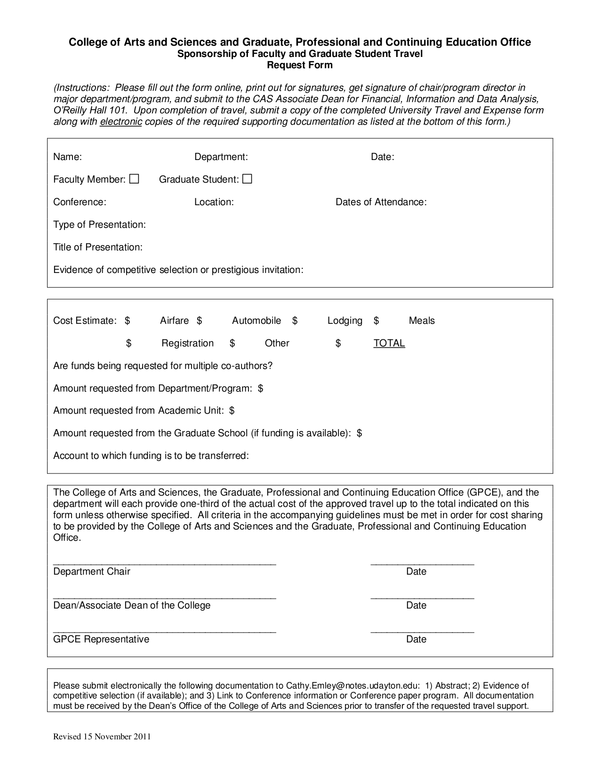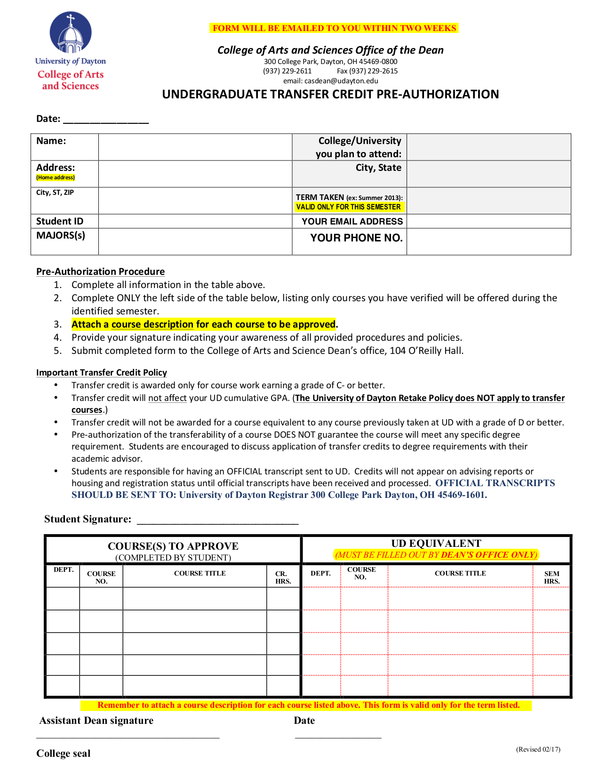University Of Dayton Transfer Credit Form – If you’re unsure about the process of transferring, you may submit The Transfer Credit Acquired Form or the TCAF. You may have a particular course that you’ve not completed or haven’t earned a grade for that you’re unsure if you could apply it towards your degree. The good news is that you can. It is generally accepted that courses with the grade of C or higher do not require a review of material. However, you should be aware that courses that don’t transfer to a particular U-M course can be considered departmental credit. If it’s not, you don’t have the ability to transfer it to an U-M class and you might not be able to meet the requirements for a degree.
Coursework should earn a grade equivalent to a C – or better
For your courses to transfer you must have an average of C or better. To be eligible to transfer credits, they must have been taken at an accredited institution including The Higher Learning Commission or the Middle States Association of Colleges and Schools (MASAC). International programs must be evaluated upon an individual basis. Official transcripts need to be provided directly to CCS. Your previous institution should also accept the courses.
In order to transfer credits from your old college, classes taken at a foreign institution need to have been graded of C or higher. Pass/Satisfactory grades are not considered transferable, nor are college algebra, developmental coursework or career and technical courses. However this policy has been modified in the course of the COVID-19 epidemic, and any classes taken before that date will be accepted.
To transfer credit, courses which are offered by institutions with regional accreditation require a passing grade of “C” or better in the previous institution. To transfer credits, the courses must be comparable in scope and substance. While a grade of C is the minimum requirement for credit transfer some institutions do accept degrees of “D” or higher. Accreditation organizations comprise The Middle States Association of Colleges and Schools as well as the New England Association of Schools and Colleges and the Northwest Association of Schools and Colleges, and the Southern Association of School and Colleges.
TCEL lists courses that were transferred to Clemson prior to. This isn’t a comprehensive listing, and any courses not mentioned in this list will have to be evaluated when you apply to Clemson. There is a TCEL listing also lists similar courses, but the list does not reflect differences in the number of credit hours offered by different institutions. While the TCEL list courses that are equivalent to courses taught at other colleges The Office of Admissions’ evaluations depend on the most current information.
While your previous course work might be acceptable in some cases, it is vital to revisit its academic consequences. If you’re in a position to not do the required work Consider retaking the course. Make sure you earn at least an “C” in the course in addition to meeting any other conditions of the university. Retaking a course two or three times will affect your GPA cumulatively Be cautious before deciding to repeat it.





